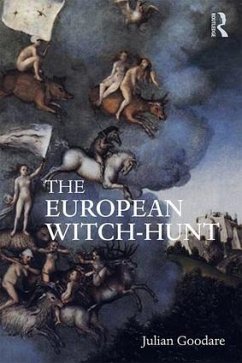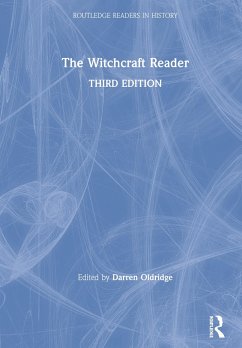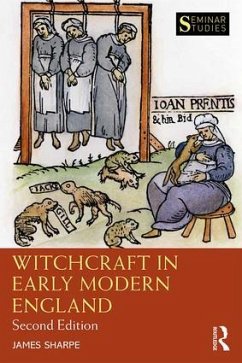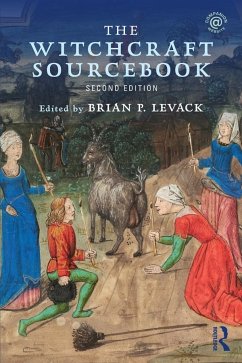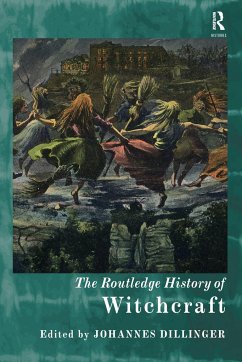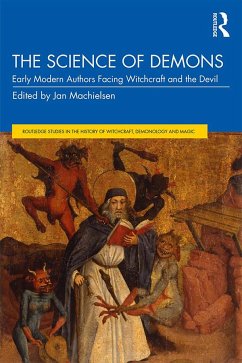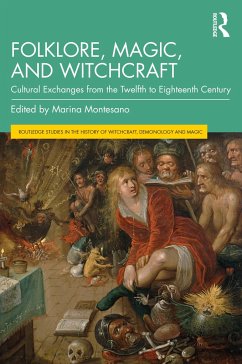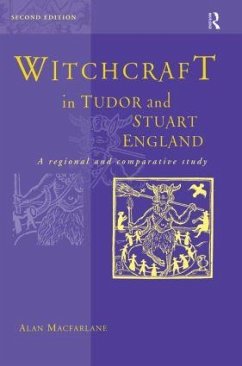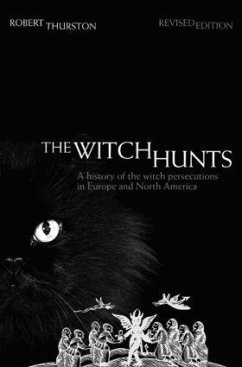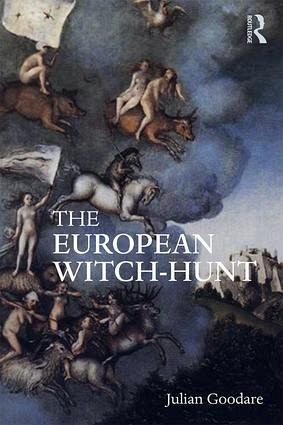
The European Witch-Hunt
Versandkostenfrei!
Versandfertig in 6-10 Tagen
47,99 €
inkl. MwSt.
Weitere Ausgaben:

PAYBACK Punkte
24 °P sammeln!
The European Witch-Hunt seeks to explain why thousands of people, mostly lower-class women, were deliberately tortured and killed in the name of religion and morality during three centuries of intermittent witch-hunting throughout Europe and North America.Combining perspectives from history, sociology, psychology and other disciplines, this book provides a comprehensive account of witch-hunting in early modern Europe. Julian Goodare sets out an original interpretation of witch-hunting as an episode of ideologically-driven persecution by the 'godly state' in the era of the Reformation and Count...
The European Witch-Hunt seeks to explain why thousands of people, mostly lower-class women, were deliberately tortured and killed in the name of religion and morality during three centuries of intermittent witch-hunting throughout Europe and North America.
Combining perspectives from history, sociology, psychology and other disciplines, this book provides a comprehensive account of witch-hunting in early modern Europe. Julian Goodare sets out an original interpretation of witch-hunting as an episode of ideologically-driven persecution by the 'godly state' in the era of the Reformation and Counter-Reformation. Full weight is also given to the context of village social relationships, and there is a detailed analysis of gender issues. Witch-hunting was a legal operation, and the courts' rationale for interrogation under torture is explained. Panicking local elites, rather than central governments, were at the forefront of witch-hunting. Further chapters explore folk beliefs about legendary witches, and intellectuals' beliefs about a secret conspiracy of witches in league with the Devil. Witch-hunting eventually declined when the ideological pressure to combat the Devil's allies slackened. A final chapter sets witch-hunting in the context of other episodes of modern persecution.
This book is the ideal resource for students exploring the history of witch-hunting. Its level of detail and use of social theory also make it important for scholars and researchers.
Combining perspectives from history, sociology, psychology and other disciplines, this book provides a comprehensive account of witch-hunting in early modern Europe. Julian Goodare sets out an original interpretation of witch-hunting as an episode of ideologically-driven persecution by the 'godly state' in the era of the Reformation and Counter-Reformation. Full weight is also given to the context of village social relationships, and there is a detailed analysis of gender issues. Witch-hunting was a legal operation, and the courts' rationale for interrogation under torture is explained. Panicking local elites, rather than central governments, were at the forefront of witch-hunting. Further chapters explore folk beliefs about legendary witches, and intellectuals' beliefs about a secret conspiracy of witches in league with the Devil. Witch-hunting eventually declined when the ideological pressure to combat the Devil's allies slackened. A final chapter sets witch-hunting in the context of other episodes of modern persecution.
This book is the ideal resource for students exploring the history of witch-hunting. Its level of detail and use of social theory also make it important for scholars and researchers.





